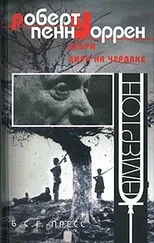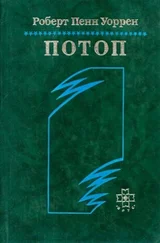Роберт Уоррен - All the king's men
Здесь есть возможность читать онлайн «Роберт Уоррен - All the king's men» весь текст электронной книги совершенно бесплатно (целиком полную версию без сокращений). В некоторых случаях можно слушать аудио, скачать через торрент в формате fb2 и присутствует краткое содержание. Жанр: Современная проза, на английском языке. Описание произведения, (предисловие) а так же отзывы посетителей доступны на портале библиотеки ЛибКат.
- Название:All the king's men
- Автор:
- Жанр:
- Год:неизвестен
- ISBN:нет данных
- Рейтинг книги:4 / 5. Голосов: 1
-
Избранное:Добавить в избранное
- Отзывы:
-
Ваша оценка:
- 80
- 1
- 2
- 3
- 4
- 5
All the king's men: краткое содержание, описание и аннотация
Предлагаем к чтению аннотацию, описание, краткое содержание или предисловие (зависит от того, что написал сам автор книги «All the king's men»). Если вы не нашли необходимую информацию о книге — напишите в комментариях, мы постараемся отыскать её.
All the king's men — читать онлайн бесплатно полную книгу (весь текст) целиком
Ниже представлен текст книги, разбитый по страницам. Система сохранения места последней прочитанной страницы, позволяет с удобством читать онлайн бесплатно книгу «All the king's men», без необходимости каждый раз заново искать на чём Вы остановились. Поставьте закладку, и сможете в любой момент перейти на страницу, на которой закончили чтение.
Интервал:
Закладка:
A few days later Cass went back to Mississippi to devote some months to his plantation, and, under the guidance of Gilbert, to go once to Jackson, the capital, and once to Vicksburg. It was a busy summer. Now Cass could see clearly what Gilbert intended: to make him rich and to put him into politics. It was a flattering and glittering prospect, and one not beyond reasonable expectation for a young man whose brother was Gilbert Mastern. ("My brother is a man of great taciturnity and strong man, and when he speaks, though he practices no graces and ingratiations, all men, especially those of the sober sort who have responsibility and power, weigh his words with respect.") So the summer passed, under the strong hand and cold eye of Gilbert. But toward the end of the season, when already Cass was beginning to give thought to his return to Transylvania, an envelope came addressed to him from Lexington, in an unfamiliar script. When Cass unfolded the single sheet of paper a small pressed blossom, or what he discovered to be such, slipped out. For a moment he could not think what it was, or why it was in his hand. Then he put it to his nostrils. The odor, now faint and dusty, was the odor of jasmine.
The sheet of paper had been folded twice, to make four equal sections. In one section, in a clean, strong, not large script, he read: "Oh, Cass!" That was all.
It was enough.
One drizzly autumn afternoon, just after his return to Lexington, Cass called at the trice house to pay his respects. Duncan Trice was not there, having sent word that he had been urgently detained in town and would be home for a late dinner. Of that afternoon, Cass wrote: "I found myself in the room alone with her. There were shadows, as there had been that afternoon, almost a year before, when I first saw her in that room, and when I had thought that her eyes were black. She greeted me civilly, and I replied and stepped back after having shaken her hand. Then I realized that she was looking at me fixedly, as I at her. Suddenly, her lips parted slightly and gave a short exhalation, like a sigh or suppressed moan. As of one accord, we moved toward each other and embraced. No words passed between us as we stood there. We stood there for a long time, or so it seemed. I held her body close to me in a strong embrace, but we did not exchange a kiss, which upon recollection has since seemed strange. But was it strange? Was it strange that some remnant of shame should forbid us to look each other in the face? I felt and heard my heart racing within my bosom, with a loose feeling as though it were unmoored and were leaping at random in a great cavity within me, but at the same time I scarcely accepted the fact of my situation. I was somehow possessed by incredulity, even as to my identity, as I stood there and my nostrils were filled with the fragrance of her hair. It was not to be believed that I was Cass Mastern, who stood thus in the house of a friend and benefactor. There was no remorse or horror at the turpitude of the act, but only the incredulity which I have referred to. (One feels incredulity at the first breaking of a habit, but horror at the violation of a principle. Therefore what virtue and honor I had known in the past had been an accident of habit and not the fruit of will. Or can virtue be the fruit of human will? The thought is pride.)
"As I have said, we stood there for a long time in a strong embrace, but with her face lowered against my chest, and my own eyes staring across the room and out a window into the deepening obscurity of the evening. When she finally raised her face, I saw that she had been silently weeping. Why was she weeping? I have asked myself that question. Was it because even on the verge of committing and irremediable wrong she could weep at the consequence of an act which she felt powerless to avoid? Was it because the man who held her was much younger than she and his embrace gave her the reproach of youth and seven year? Was it because he had come seven years too late and could not come in innocence. It does not matter what the cause. If it was the first, then the tears can only prove that sentiment is no substitute for obligation, if the second, then they only prove that pity of the self is no substitute for wisdom. But she shed the tears and finally lifted her face to mine with those tears bright in her large eyes, and even now, though those tears were my ruin, I cannot wish them unshed, for they testify to the warmth of her heart and prove that whatever her sin (and mine she did not step to it with a gay foot and with the eyes hard with lust and fleshy cupidity.
"The tear were my ruin, for when she lifted her face to me some streak of tenderness was mixed into my feeling, and my heart seemed to flood itself into my bosom to fill that great cavity wherein it had been leaping. She said, 'Cass'–the first time she had ever addressed me by my Christian name. 'Yes,' I replied. 'Kiss me,' she said very simply, 'you can do it now.' So I kissed her. And thereupon in the blindness of our mortal blood and in the appetite of our hearts we performed the act. There in that very room with the servants walking with soft feet somewhere in the house and with the door to the room open and with her husband expected, and not yet in the room the darkness of evening. But we were secure in our very recklessness, as though the lustful heart could give forth a cloud of darkness in which we were shrouded, even as Venus once shrouded Aeneas in a cloud so that he passed unspied among men to approach the city of Dido. In such cases as ours the very recklessness gives security as the strength of the desire seems to give the sanction of justice and righteousness.
"Though she had wept and had seemed to perform the act in a sadness and desperation, immediately afterward she spoke cheerfully to me. She stood in the middle of the room pressing her hair into place, and I stumblingly ventured some remark about our future, a remark very vague for my being was still confused, but she responded, 'Oh, let us not think about it now,' as though I had broached a subject of no consequence. She promptly summoned a servant and asked for lights. They were brought and thereupon I inspected her face to find it fresh and unmarked. When her husband came, she greeted him familiarly and affectionately, and as I witnessed it my own heart was wrenched, but not, I must confess, with compunction. Rather with a violent jealousy. When he spoke to me and took my hand, so great was my disturbance that I was sure that my face could not but betray it."
So began the second phase of the story of Cass Mastern. All that year, as before, he was often in the house of Duncan Trice, and as before he was often with him in field sports, gambling, drinking, and racegoing. He learned, he says, to "wear his brow unwrinkled," to accept the condition of things. As for Annabelle Trice, he says that sometimes looking back, he could scarcely persuade himself that "she had shed tears." She was, he says, "of a warm nature, reckless and passionate of disposition, hating all mention of the future (she would never let me mention times to come), agile, resourceful, and cheerful in devising to gratify our appetites, but with a womanly tenderness such as any man might prize at a sanctified hearthside." She must indeed have been agile and resourceful, for to carry on such a liaison undetected in that age and place must have been a problem. There was a kind of summerhouse at the foot of the Trice garden, which one could enter unobserved from an alley. Some of their meeting occurred there. A half-sister of Annabelle Trice, who lived in Lexington, apparently assisted the lovers or winked at their relationship, but, it seems, only after some pressure by Annabelle, for Cass mentions "a stormy scene." So some of the meetings were there. But now and then Duncan Trice had to be out of town on business, and on those occasions Cass would be admitted, late at night, to the house, even during a period when Annabelle's mother and father were staying there; so he actually lay in the very bed belonging to Duncan Trice.
Читать дальшеИнтервал:
Закладка:
Похожие книги на «All the king's men»
Представляем Вашему вниманию похожие книги на «All the king's men» списком для выбора. Мы отобрали схожую по названию и смыслу литературу в надежде предоставить читателям больше вариантов отыскать новые, интересные, ещё непрочитанные произведения.
Обсуждение, отзывы о книге «All the king's men» и просто собственные мнения читателей. Оставьте ваши комментарии, напишите, что Вы думаете о произведении, его смысле или главных героях. Укажите что конкретно понравилось, а что нет, и почему Вы так считаете.





![Роберт Уоррен - Рассказы [Компиляция]](/books/419993/robert-uorren-rasskazy-kompilyaciya-thumb.webp)


